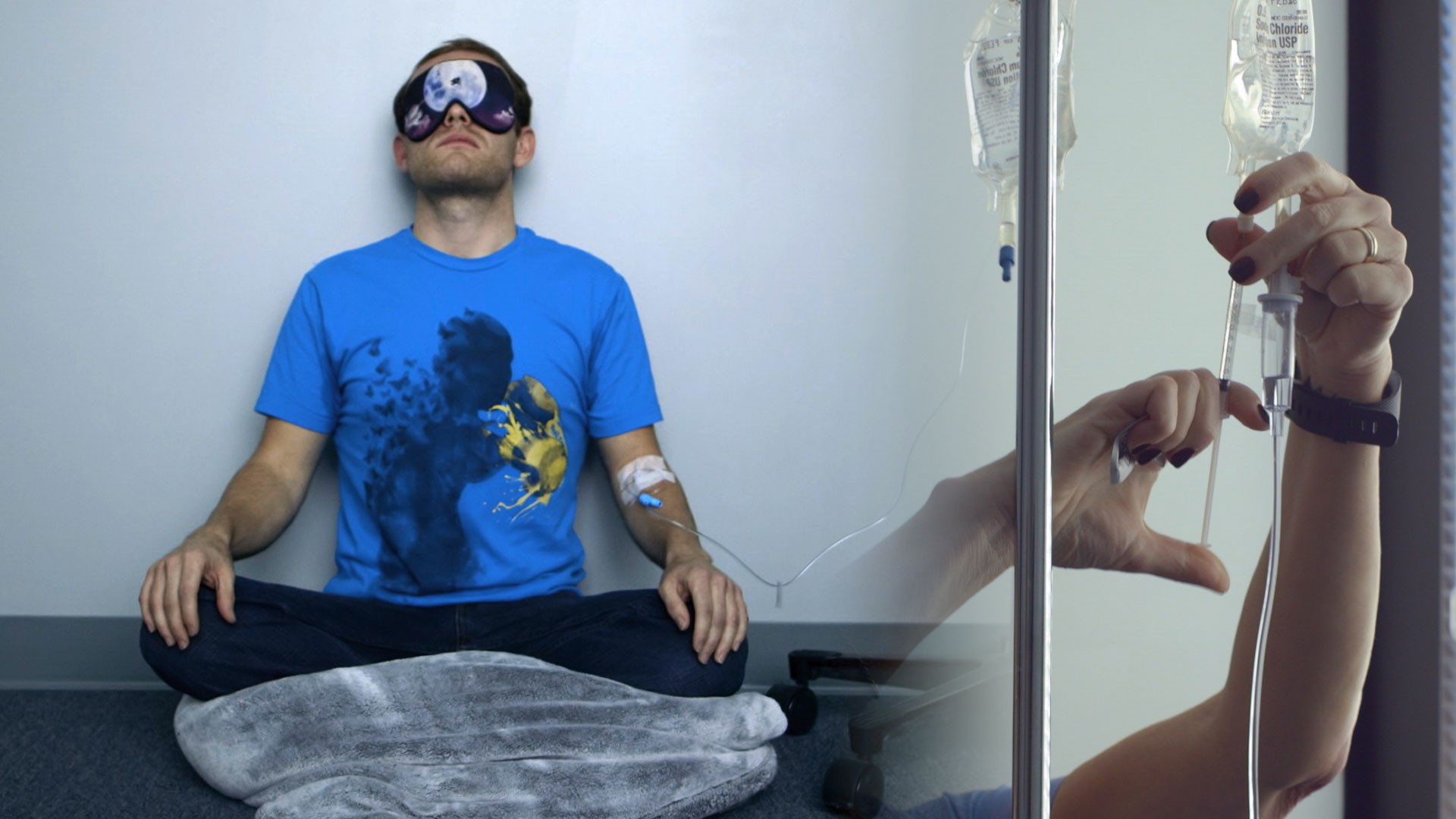Artur Debat/Getty Images
It's Sunday morning after a night spent dancing on the beach to electronic music. Waves lap nearby, the dance floor nothing but sand lit up by fire spinners and LED lights. In domes constructed of neon spandex, groups of people have gathered for yoga—and maybe more dancing. They're not, as you might expect, hungover zombies from the night before, but glowing from three days of fresh air, vitamin D, and organic food.Traditionally, "partying" doesn't bring to mind meditation, sober dancing, and self-help seminars. But at events like Gratitude Migration, a "transformational" beach festival in Keansburg, New Jersey, or PEX, a similar festival held on a forest campground in Maryland, attendees want more than just a lost weekend or cathartic escape.That isn't to say having fun isn't part of the reason people spend upwards of $200 for tickets, but the weekend is about much more than lathering your half-naked body in glitter, taking molly, and spending the night hula hooping.People who attend these festivals aren't partying to get fucked up, but to get well—to heal, rejuvenate, and perhaps bring a piece of that newfound vigor back to the real world. They do that by seeking sustainable highs—sometimes naturally through yoga and breath work, and yes, sometimes through therapeutic drug experiences. Whether it's on the beach, in the forest, or in the city, they're partying with a purpose."There's nothing wrong with partying, but when we do it only for self-gratification, it becomes hedonism," says Rishe Groner, communications director for Gratitude Migration. The idea behind festivals like Gratitude Migration, Groner says, is to find ways to make the experience more meaningful and fulfilling—a new friendship, for instance, could lead to a long-term creative collaboration.
More From Tonic:
Both festivals also feature a long list of activities and talks to keep your mind occupied when you're off the dance floor. The list, admittedly, reads like the stuff of millennial satire: There are primers on Thai massage and tarot reading, and sessions that involve "authentic relating" ("explore ways of seeing, connecting, and appreciating yourself and others at a deeper level") and "dancing in the dark" ("harmonize and integrate our internal masculine and feminine elements").While it may seem eye-rolling at first glance, the point is that dancing to all-night DJ sets is only half the story. "Partying," for many people, is taking on a more layered definition. Nightlife can be nourishing—a way to feed virtues, rather than vices. Or maybe both."Nightlife is changing and the reason for partying is evolving," says Ophra Werde, director of mind, body, and spirit for Gratitude Migration, who says people are "deepening instead of disconnecting" when they party. It's a sentiment commonly echoed by those most familiar with the festivals. "People are hungry for spiritual connection, but maybe not through traditional religious venues anymore," says Kai Altair, a Brooklyn-based electronic music producer and singer who has worked in nightlife since the early 2000s. He adds that people tend to grow weary of raving, rolling, boozing, and staying up all night. "There's a certain level of burnout," he says. "There's only so far you can take it before there are diminishing returns."Medical professionals, too, report seeing a shift in how their patients approach both partying and drug use—and how the latter has influenced the former. New York-based psychiatrist and author Julie Holland says more of her younger patients have expressed interest in taking MDMA in small groups, with a partner, or even alone to work out their issues through self exploration. Many have also asked about ayahuasca ceremonies or microdosing. As the New Yorker put it, ayahuasca is the "drug of choice for the age of kale." As the zeitgeist promotes more soulful, therapeutic drug use, people increasingly want to heal themselves."More patients are embracing the idea that they can dig a little deeper to explore some of the issues that are driving a depressed mood or maladaptive behavior," Holland says. "Sometimes these altered states lead to productive soul searching and behavior changes."As Altair puts it, "People want to do something to activate themselves. And they want these events to be [the] moment when that activation happens."Read This Next: One of the World's Busiest DJs Never Has a Hangover
Advertisement
More From Tonic:

Both festivals also feature a long list of activities and talks to keep your mind occupied when you're off the dance floor. The list, admittedly, reads like the stuff of millennial satire: There are primers on Thai massage and tarot reading, and sessions that involve "authentic relating" ("explore ways of seeing, connecting, and appreciating yourself and others at a deeper level") and "dancing in the dark" ("harmonize and integrate our internal masculine and feminine elements").
Advertisement